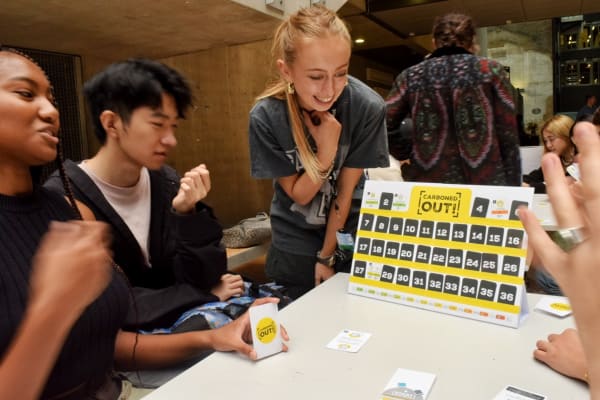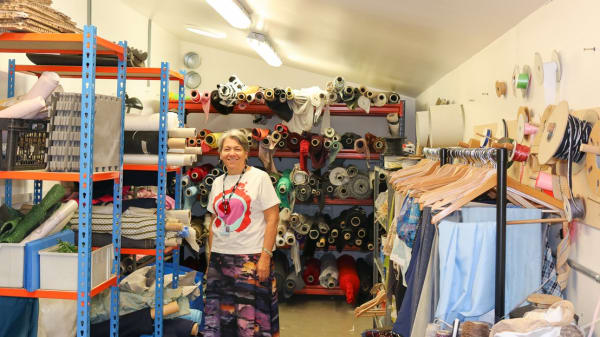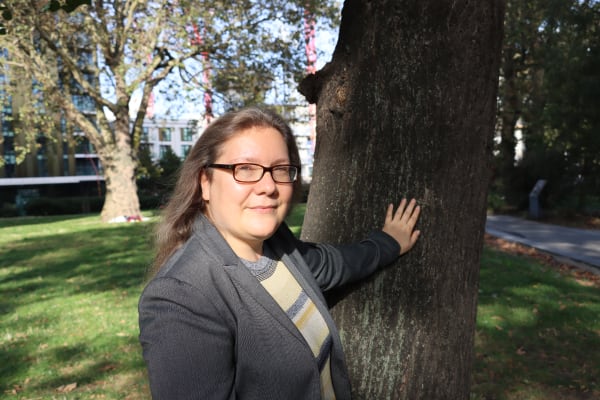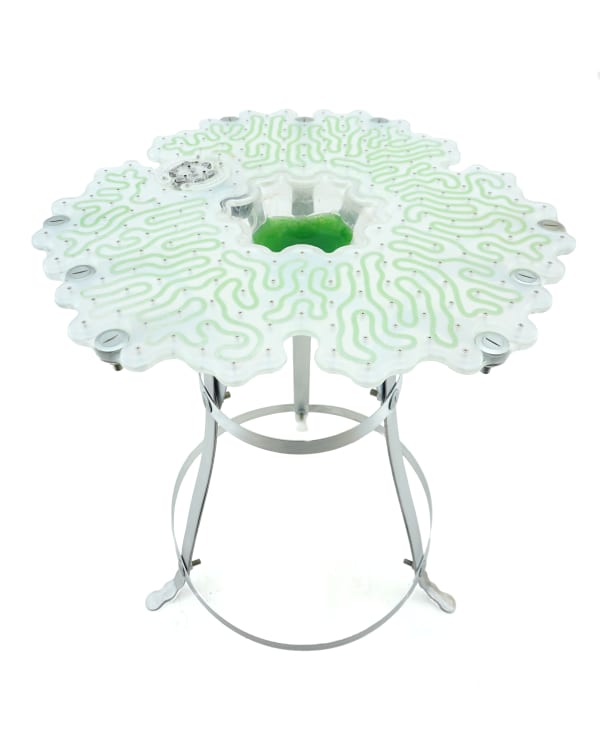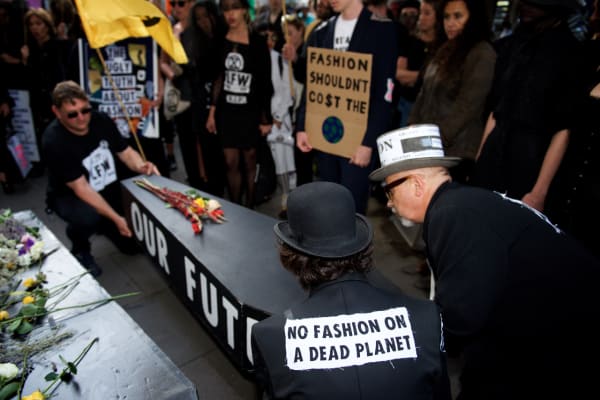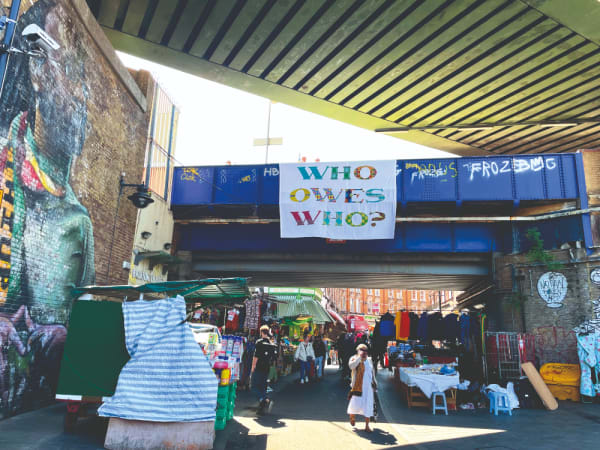Climate Action Plan
We're in the top 5 greenest universities in the UK and are the highest-ranking arts university in People & Planet’s University League.
As one of the world’s biggest creative institutions, we must continue to play our part in achieving climate justice.
Four action areas
-

Mayyadah Hameed, 2021 MA Interior and Spatial Design, Camberwell College of Arts, UAL
-

Work by Monsoon Assemblages at Planetary Assemblages exhibition, Lethaby Gallery, Central Saint Martins 2022 | Photograph: Eilwen Jones
-
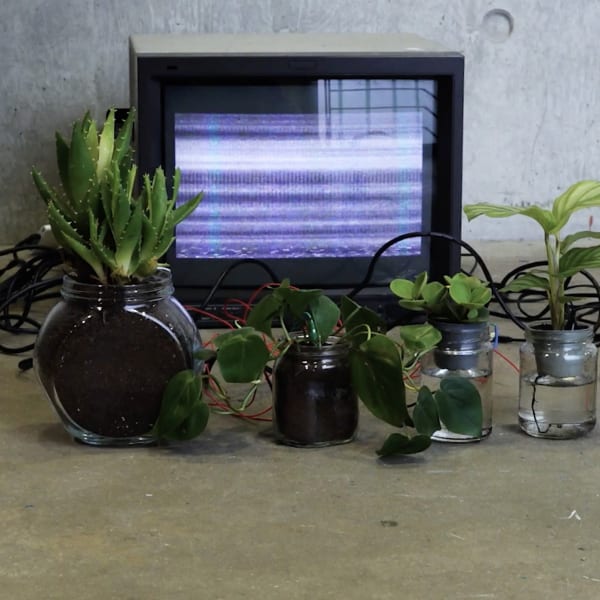
Marianne Thomas, 2022 BA Graphic Communication Design, Central Saint Martins, UAL | Photograph: Marianne Thomas
-
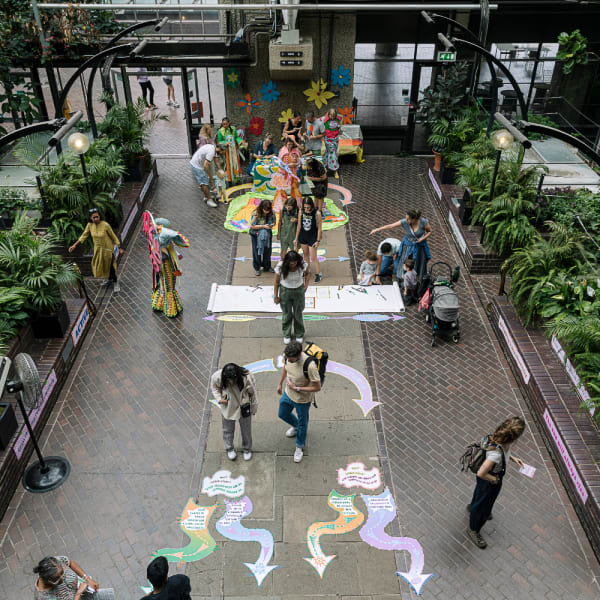
Climate Emergency Network’s Earth Quest at Barbican Centre, 2022 | Photograph: Hydar Dewachi
Sustainability
-
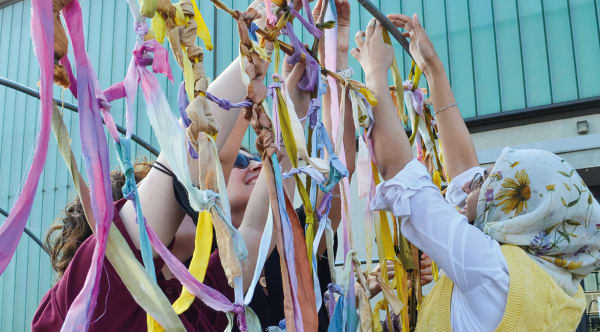
Suzie McMurtry, 2021 Big Welcome | UAL
-
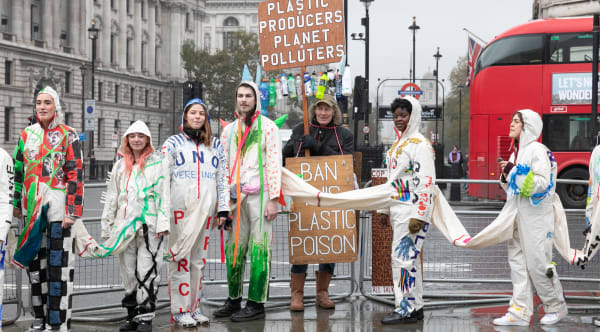
Nexus Architecture by Lucy Orta at Parade for Climate Justice, Carnival of Crisis 2021 | Photograph: Lori Demata
-
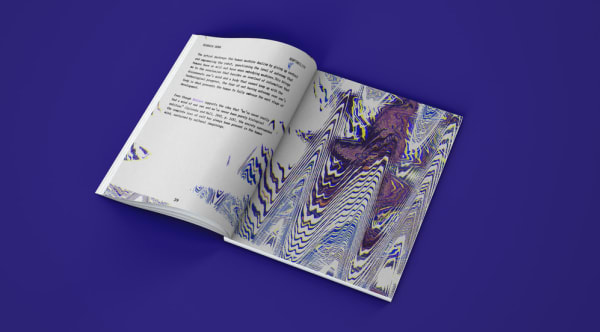
Publication by Georgia Duna, 2020 BA Design for Art Direction, London College of Communication, UAL
-
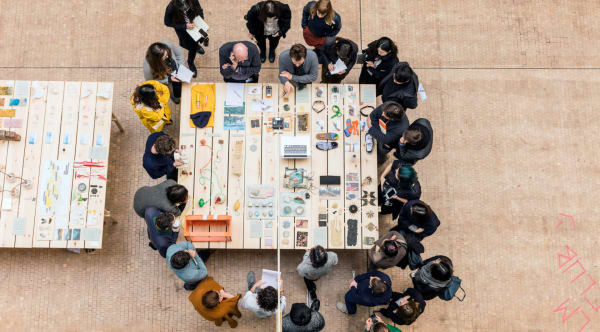
MA Material Futures work in progress presentation in the Street at Central Saint Martins | Photograph: John Sturrock



